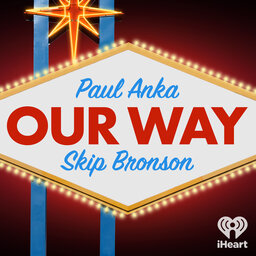Alec Baldwin joins Paul and Skip to discuss his storied acting career, spanning 'The Hunt for Red October' to his record-breaking stint on 'SNL,' '30 Rock' and beyond. He offers the guys an impromptu lesson on method acting, explains why he was reluctant to do his iconic monologue in ‘Glengarry Glen Ross’ and how his instant-classic Trump impression impacted his view on the ex-President. Baldwin also reflects on the time he called Paul McCartney an “A-hole” in a yoga class, how he wound up as the first guest on ‘Inside the Actors Studio,’ and his 39 years of hard-won sobriety.
In 1 playlist(s)
Our Way with Paul Anka and Skip Bronson
Music icon Paul Anka and business visionary Skip Bronson are dear friends, and together they boast t…Social links
Follow podcast
Recent clips

FROM THE VAULT: 'SNL' Veteran Kevin Nealon
1:03:56

Design and Marketing Visionary Peter Arnell
1:20:40

Jimmy Kimmel
1:03:08
 Our Way with Paul Anka and Skip Bronson
Our Way with Paul Anka and Skip Bronson